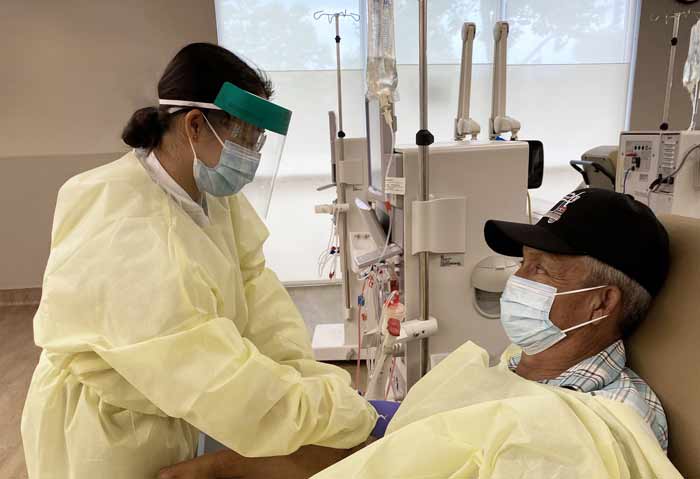
Availability of dialysis clinics is critical for patients and our healthcare system
Missing just one dialysis treatment increases patient risk of death by 30%. Without dialysis treatment, toxic wastes and fluid build up in a patient’s body. In fact, dialysis is so critical that without it, a patient would only be able to survive a week or two.
If patients don’t have access to nearby dialysis, they will be more likely to miss dialysis treatments, endangering their lives. Missing treatments not only increases the risk of death but also results in health complications which could put patients in the hospital emergency room at a much higher cost to them and to Medicare and Medi-Cal.
California outperforms the nation in quality patient care
In California, dialysis patient care quality exceeds the national average according to data from the Centers for Medicare & Medicaid Services (CMS) which regulates dialysis clinics nationwide.
In addition to better patient care, California also has a lower infection rate than the national average.
And California also has a lower mortality rate than the national average.


California dialysis patients report being more satisfied with their care
Dialysis patients in California also report being more satisfied with their dialysis clinic patient experience, according to the Centers for Medicare & Medicaid Services.Dialysis clinics are heavily regulated
Dialysis clinics must adhere to 376 unique regulations and are surveyed to ensure compliance with each of those. In addition, surveyors review clinic policies & procedures on a regular basis.
Patients have the right to file a complaint with both state and federal regulators and all patient complaints are investigated by state & local health authorities.
In addition, all dialysis clinics are subject to dialysis-specific OSHA regulations
